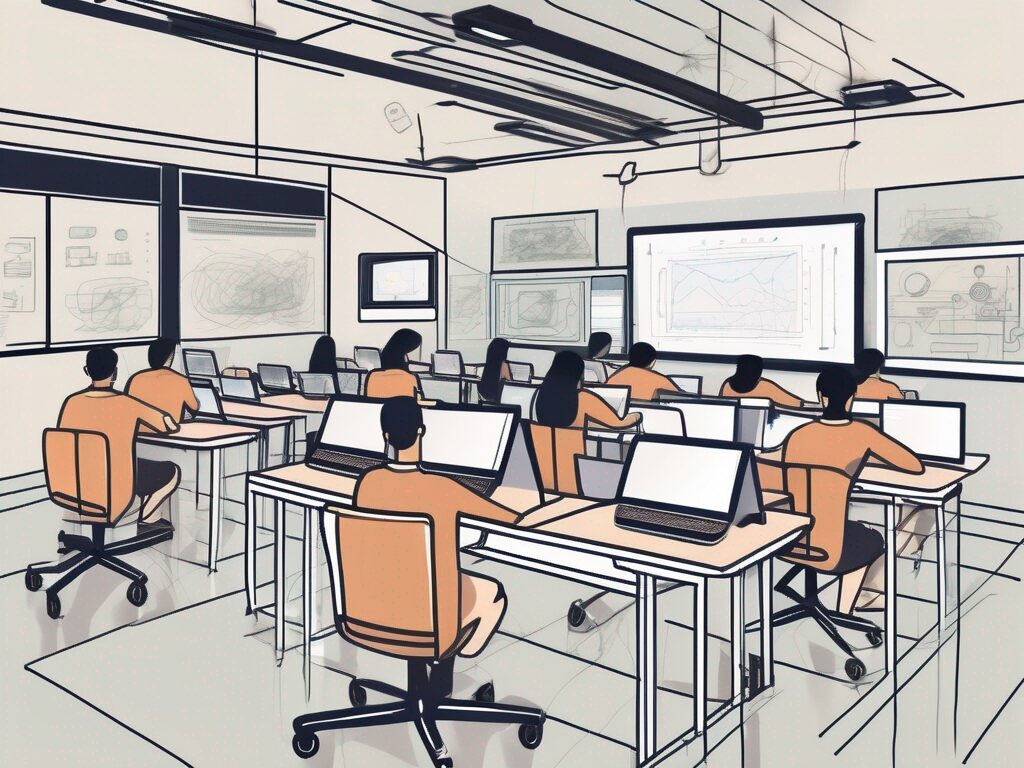Transforming Thailand’s Classrooms with Technology by 2025
The integration of technology within educational environments is a pivotal global movement that is reshaping the landscape of learning. Thailand, a dynamic nation in Southeast Asia, is actively participating in this transformation. The country is making substantial investments to incorporate advanced technological tools in its classrooms, with the objective of equipping students with essential skills for success in the digital era.
Current Landscape of Technology in Thai Education
Thailand’s educational framework is currently experiencing a significant digital transformation, supported by substantial government investments in technological infrastructure. This initiative has led to the establishment of digital classrooms, which are now equipped with interactive whiteboards, tablets, and high-speed internet access. However, the implementation of technology in education is not without its challenges.
A primary concern is the digital divide that exists between urban and rural educational institutions. Urban schools typically enjoy superior access to technological resources, while their rural counterparts often struggle with inadequate infrastructure. This disparity presents a formidable obstacle to achieving comprehensive digital literacy across the nation. Nevertheless, the government is actively pursuing strategies to mitigate this gap.
Effective Strategies for Technology Integration in Classrooms
Successful integration of technology in educational settings transcends the mere acquisition of modern devices; it necessitates a strategic approach to enhance the learning experience. Below are key strategies that Thailand is implementing to optimize technology use in education.
Professional Development for Educators
Educators are integral to the effective integration of technology in classrooms. In Thailand, comprehensive professional development programs are being instituted to equip teachers with the skills necessary for proficient technology use. These programs emphasize the incorporation of technology into lesson planning and the promotion of interactive learning methodologies.
For instance, educators are trained to utilize interactive whiteboards to create engaging lessons and to leverage educational applications and online resources to enrich their teaching practices. This approach is analogous to a chef mastering new culinary tools to elevate their culinary creations.
Promoting Student-Centered Learning
Technology provides extensive opportunities for fostering student-centered learning environments. In Thailand, educational institutions are harnessing technology to encourage active learning, allowing students to explore, experiment, and progress at their own pace. This methodology is akin to granting a child the freedom to navigate a toy store, selecting items that pique their interest and facilitating their learning journey.
For example, students can utilize tablets to access interactive educational materials, engage in virtual laboratories, or collaborate with peers on various projects. This approach not only enhances engagement but also cultivates critical thinking and problem-solving abilities.
Future Outlook for Technology in Thai Classrooms
The prospects for technology integration in Thailand’s educational institutions appear promising. With ongoing investments in infrastructure and educator training, the nation is well-positioned to make significant advancements in digital education.
One notable opportunity lies in the application of artificial intelligence (AI) within educational contexts. AI has the potential to deliver personalized learning experiences, adapt to individual student learning paces, and provide immediate feedback. This capability can be likened to having a personal tutor who tailors lessons to address specific strengths and weaknesses.
Additionally, the advent of virtual reality (VR) technology presents a transformative opportunity for immersive learning experiences. VR can transport students to diverse environments, historical periods, or even within the human body, thereby enriching the educational experience akin to a field trip conducted from the classroom.
Conclusion
The journey of integrating technology into Thailand’s classrooms is characterized by both challenges and opportunities. However, with the implementation of effective strategies and sustained investment, the country is on a trajectory to revolutionize its educational system for the digital age. As technological advancements continue to unfold, it will be intriguing to observe their impact on the future of education in Thailand.
Enhance Your Teaching Career with IPGCE
As Thailand embraces the digital transformation in education, the demand for qualified educators proficient in technology integration is escalating. For those seeking to elevate their qualifications and distinguish themselves in the international teaching landscape, the International Postgraduate Certificate in Education (iPGCE) offers a pathway to success. Our program not only enhances your prospects of securing interviews by 50% but also connects you with a vibrant professional community, significantly reducing feelings of isolation. Experience a 45% increase in promotion opportunities and a 30% salary enhancement. Our flexible online study options are tailored to accommodate your busy teaching schedule, enabling you to advance your career without interrupting your current role. Do not allow insufficient credentials to hinder your progress. Enroll in the UK’s leading Teacher Training Course today and position yourself as a leader in the evolving global education landscape.

